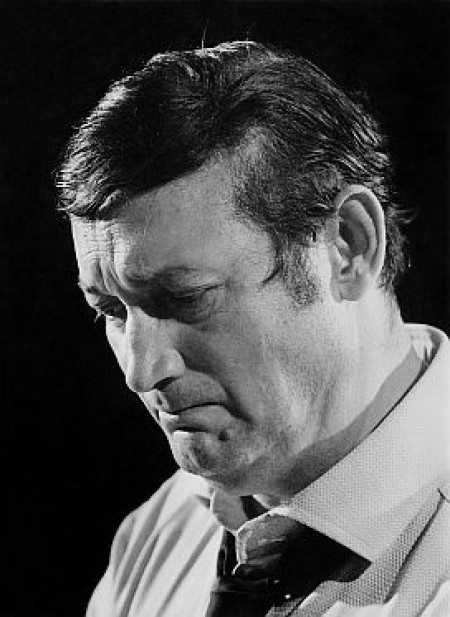
5 November 1921, Budapest – 15 January 1994, Senlis
His one-time teacher, György Ferenczy, recalled the discovery of György Cziffra as follows: "I first heard about him in the Fészek Artists' Club from Imre Keéri-Szántó, who reported: ‘A new Liszt has joined my class!' But at that time, and for some time after that, we did not hear him play the piano. After the war the news spread that Cziffra became a bar pianist. In 1950, one evening I found myself in the Kedves espresso, and suddenly strange piano playing could be heard. Who could that be, some of the time playing popular numbers, and at other times magnificent free improvisations? We got acquainted and a few weeks later György Cziffra entered the Music Academy as an irregular student. Within a few months he made progress that others take years to achieve; his extraordinary talent developed at an incredible rate. His first public concert was a memorable success: his artist teachers and listeners were electrified…"
György Cziffra was born in Budapest in 1921. Though the New Grove Dictionary calls him a French pianist of Hungarian birth, Cziffra never considered himself other than Hungarian, who – in the last decades of his life – happened to be a French citizen. He began his career as a child prodigy, a period described in his autobiography, Cannons and Flowers. He was admitted to the Music Academy in 1930, as Ernő Dohnányi's pupil. His successful career was broken in half by the Second World War. For an artist with a sensitive soul and sensitive hands it was torture to serve in the army, as was the Russian prisoner of war camp which followed. These events not only stopped his musical development but made the prospect of reviving his career to appear hopeless. Returning home in 1947, he considered that his past achievements had vanished, so worked as a bar pianist to maintain his family. Following his meeting with György Ferenczy, he once again achieved real successes, but nonetheless did not consider his future safe. Thus in 1950 Cziffra decided to leave the country illegally. After the failure of that attempt he was imprisoned for three years, but from 1953 onwards was able to renew his career as a soloist, and soon won himself a special rank in musical life. Besides his concerts, he also played almost four and a half hours of music onto tapes for the Hungarian Record Manufacturing Enterprise (the predecessor of Hungaroton); these are all available on disc now.
In 1956 he escaped Hungary and went to France, where he lived till his death. His remarkable technical virtuosity and precise play, which also exhibited a fiery energy, made him highly successful all over the world. Today he is regarded as an authoritative interpreter of the 19th century repertoire, particularly of the music of Schumann, Chopin and Liszt. His own transcriptions reveal a great aptitude for composing and excellent taste.
He began his activities as a patron of the arts in 1969, when he founded in Versailles the international piano competition bearing his name. Among his achievements are the reconstruction of the royal chapel in Senlis, and the creation of the Ferenc Liszt Auditorium there. He envisaged and created a number of foundations and scholarships, and by helping the studies of artists at the beginning of their careers, he played a role in the continuation of the great European pianistic tradition.
K. T.


